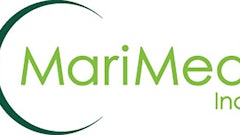

When Bruce Linton rang the opening bell of the Nasdaq on May 1 (dialing in virtually from his home in Austin, Texas), he was heralding a new era in cannabis capital. His latest venture, a special purpose acquisition corporation (SPAC) called Collective Growth Corp., was going public with a $150-million raise.
SPACs are known as “blank-check” companies because investors pool resources in a shell with the plan to acquire a not-yet-specified operating business. They’re designed as public-investment vehicles that seek private businesses.
The end goal is a variation on the classic merger: The resulting business combination leaves the formerly private business as a publicly listed enterprise. Typically, SPACs have up to two years to find and close a deal with a target company, otherwise, that cash goes back to investors. The best example in the industry is when the SPAC MTech Acquisition Corp. merged with MJ Freeway, a cannabis compliance technology provider, in the summer of 2019. They combined to create Akerna Corp., which was listed on the Nasdaq the following day.
Linton’s Collective Growth Corp. is targeting the “federally permissible cannabinoid industry,” meaning companies operating in the hemp extraction and manufacturing space. It’s a good time for a cool $150 million to make its way into the American hemp landscape. Touchy demand curves, arbitrary legal definitions for what constitutes “hemp” and varied regulatory hurdles left a glut of biomass sitting around after the 2019 season, and actors up and down the supply chain are looking for a way to secure their own investments in this nascent marketplace.
With capital markets running dry in cannabis, SPAC transactions offer an intriguing path forward for investors eyeing the industry. Because of the federally illegal status of cannabis, these publicly listed SPACs are focused on ancillary businesses or hemp businesses. For private companies interested in the visibility of public markets without the hassle of an IPO, working with a well-heeled SPAC offers benefits.
In the past year, from June 2019 to June 2020, seven cannabis-related SPACs have gone public. Merida Merger Corp. I—a private equity firm that raised $120 million on the Nasdaq and the NEO Exchange in Canada—is one of those. Greenrose Acquisition Corp. raised nearly $175 million to target “cannabis-adjacent businesses that do not ‘touch the plant.’”
As of mid-June, those seven companies’ assets total at least $1.3 billion, according to SPAC Research, an online database tracking SPAC SEC filings.
Other SPACs, like Schultze Special Purpose Acquisition Corp., are targeting “businesses that have experienced a financial restructuring.” In early June, Schultze’s team announced a letter of intent to combine with Colombian medical cannabis producer Clever Leaves. “The [Schultze] team possesses significant experience assisting companies similar to Clever Leaves and will be highly additive as we work to advance our commercialization efforts, further develop and broaden our brand portfolio, and expand our operations and distribution channels,” Clever Leaves CEO Kyle Detwiler said in a public statement.
Each SPAC has a finite window of time to execute on investors’ cash. That makes for an even more competitive landscape in cannabis as operators looking to leap over regional and national rivals vie for the blank checks circulating on public markets.






















